上周,一段视频在网上疯传。
视频里,孩子们一人拿一本书飞快翻动着,速度之快,指尖生风……
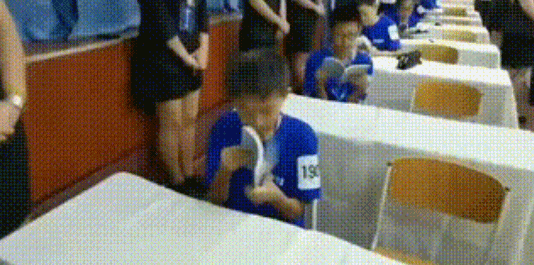
家长在后边守着,虽然大概也搞不懂孩子们在干啥,但房间里拉着的横幅“给孩子补习功课,不如补习方法”已经俘虏了他们的心。
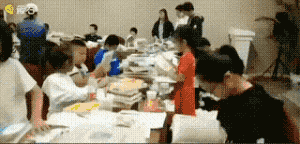
原来,这是某教育机构组织10-16岁儿童进行“量子波动速读”大赛及日常学习:“翻得越快,你和宇宙的距离就越近!”
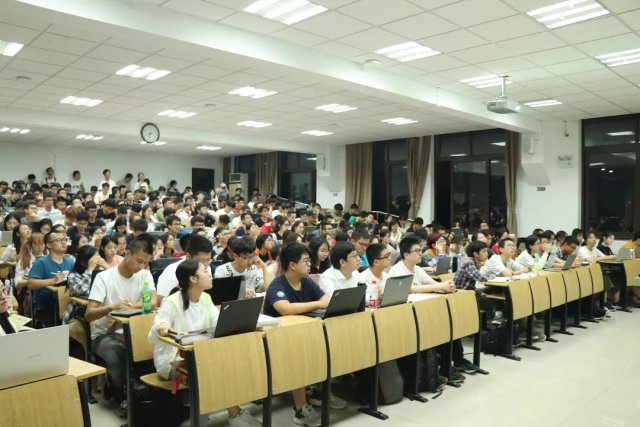
光是名字听上去就不明觉厉,再看看现场大家聚精会神的劲头,你是否也感受到了一股“宇宙的神秘力量”……
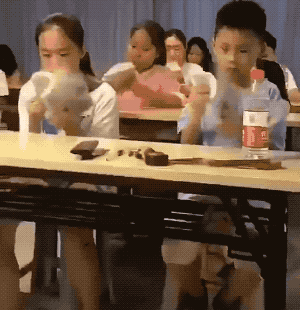
该机构号称,这是孩子们正在开启体内小宇宙,以量子能量引导大脑。上完72节课,最终可以实现用1-5分钟一目十行地看完10万字的书,并且能把内容完整复述出来!
此外,更玄乎的是,参加过培训的学生闭着眼睛就能和书发生感应,戴上眼罩也能知道作者传达的情绪和内容……
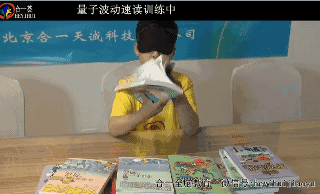
看完你只想感叹一句:今年诺贝尔物理奖恐怕颁早了……
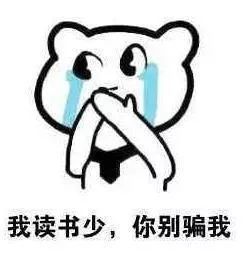
Courses claiming to teach children to read more than 100,000 words in minutes have stirred controversy after videos of students rapidly flipping through books in a competition went viral on social media.
The video reveals that the competition was organized by a subsidiary of Beijing Xinzhitong Qiguang Education Technology in Yancheng, East China's Jiangsu province, whose teachers call their training method "quantum speed-reading". This, they said, enables children to read words and perceive knowledge rapidly, even though some are seen blindly flash-flipping.
It says that after 72 classes, students can finish reading a 100,000-word book within five minutes. The course is for students aged 10 to 16.
The education center said that by flipping through pages quickly, images start to appear in a reader's mind to help them understand the content.
上周,#教育机构称5分钟读10万字#登上微博热搜,引发热议,阅读量已高达1.5亿。

On social media platform Sina Weibo, a hashtag "education institute claims it's possible to read 100,000 characters in five minutes" had received 150 million views, along with comments from doubtful internet users.
网友纷纷表示这事儿简直是“人类迷惑行为大赏”,家长们完全是在交“智商税”。
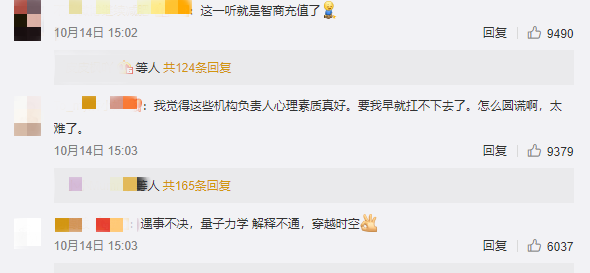

还有网友在评论区“打起了广告”……

"I have invented a new reading method, too. By putting a book on my head during sleep, the knowledge flows right into my brain because the concentration of knowledge in the book is greater than that in my brain," one netizen commented.

Another one said: "I can learn all the knowledge in the books simply by running through the library. I do not even have to open the books."
有网友编起了段子:“遇事不决,量子力学;解释不通,穿越时空;不懂配色,赛博朋克”……

其实,“量子波动速读”这个奇葩概念最早是日本教育学者飞谷由美子提出来的。当时她出了本书关于“量子波动速读”的书,之后这个概念才开始在全世界推广……
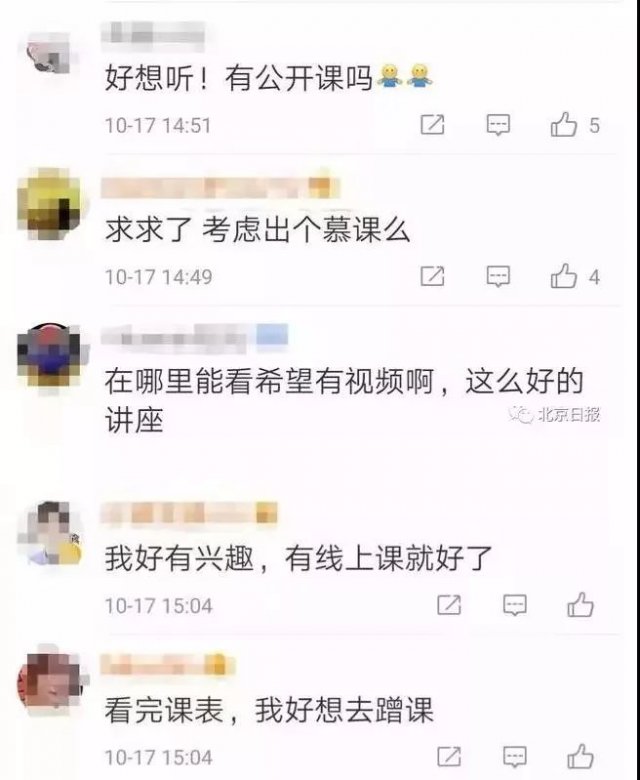
The bizarre theory was first brought up by Japanese educator Yumiko Tobitani, who wrote a book on quantum speed-reading. And the practice has been taught worldwide since then.
世纪君试着去美国亚马逊网搜了下,没错,这本书还有在售,而评价竟然也有三星……
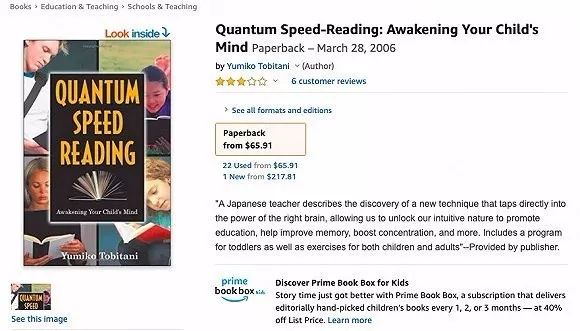
看来,全世界都有急着交“智商税”的朋友……
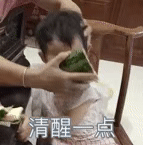
还有网友说,这是量子被黑的最惨的一次。
据央视新闻报道,其实,量子是表现某物质或物理量特性的最小单元,“量子波动”只是物理学上量子的一种状态。真实的“量子对撞机”有三四层楼高,很难想象单纯用手翻阅书本可以产生什么样“量子波动”。

教育学者熊丙奇表示,“这跟之前被报道的蒙眼识字、听声音识字等培训是一回事。完全没有科学依据,也违反基本的教育常识。”
Xiong Bingqi, deputy director of the 21st Century Education Research Institute in Beijing, said it is obvious that this kind of reading method lacks any scientific basis and is "completely nonsense".
他表示,家长在为孩子选择学习方法时,还是应该更加理性,不要幻想可以走捷径。
除了所谓的“量子波动速读”,五花八门的“量子”保健品也开始在市场上出现。
比如,此前济南一公司号称可通过量子干预技术远程接骨……
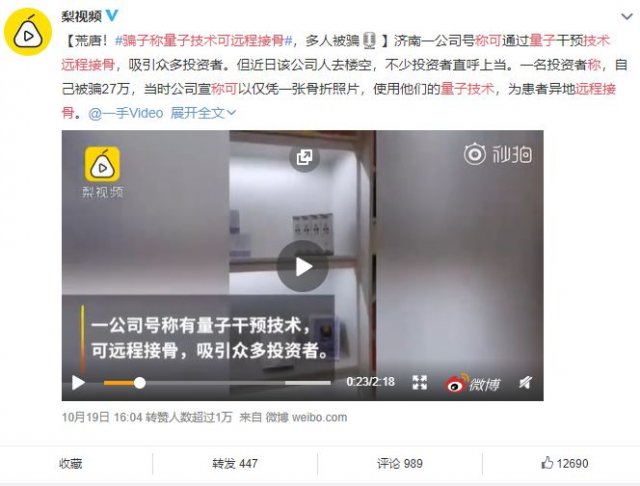
此前,中科院院士、我国的量子科技领军人物潘建伟亲自辟谣打假,希望消费者不要轻信市场上这些炒作的概念,“现在民间有一些厂家利用‘量子’的概念来推荐保健品,这些几乎都是假的,不要受骗上当。”
专破伪科学!这门课火了

想要时刻保持清醒,不被“伪科学” “洗脑”,大家除了提高警惕,还要学会换一种方式去思考。
为了帮助学生辨别真伪,上海复旦大学这学期开设了一门名为“似是而非”的课程。
每到周二18:30,开课教室H3409“一座难求”,每周都有站着听课的学生。

Lately there has been enough pseudoscience going around to worry scientists about its influence on people, particularly the youth. To help them tell the difference between fact and fiction, a course titled with a Chinese phrase meaning "apparently right, but actually wrong" has launched in Fudan University in Shanghai this school year.
在课程容量为258人的情况下,“似是而非”选课人数已经超过1000。微博上,这一话题也收获了上万网友的点赞支持。
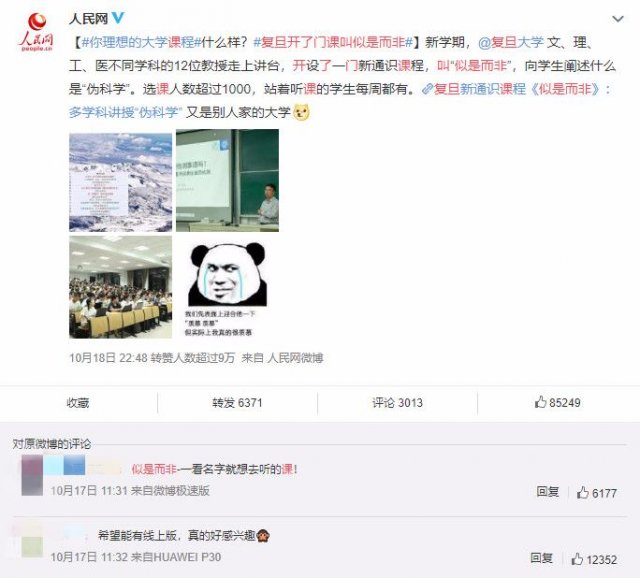
It has attracted much attention, and been welcomed by students there and across China. Over 1,000 students have chosen the course, and the topic on Weibo has won tens of thousands of thumbs-up among users in a gesture of support.
据悉,这门课由复旦大学数学科学学院教授楼红卫组织开设,生命科学学院教授卢大儒命名,文、理、工、医不同学科的12位教授走上讲台,通过17个专题,向学生们阐述什么是伪科学(pseudoscience)。
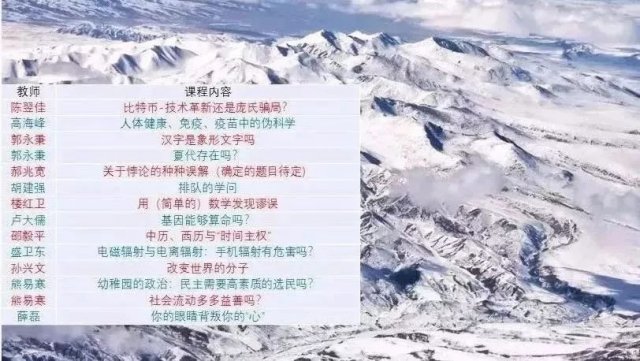
“人体健康、免疫、疫苗中的伪科学”;“基因能算命吗”;“汉字是象形文字吗”;“比特币—技术革新还是旁氏骗局?”…… 光是看这些课程题目,就非常想去听了……
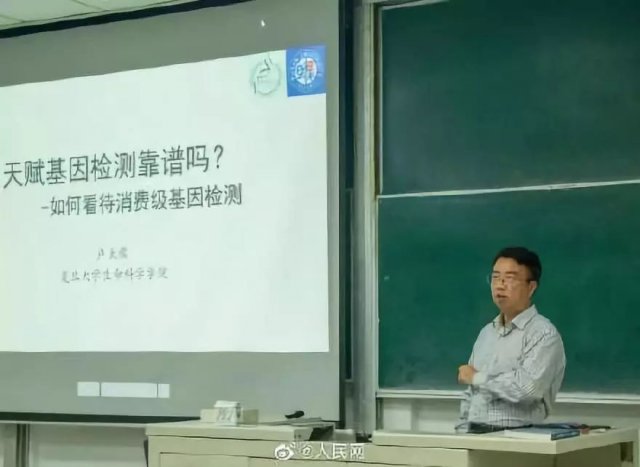
The course brings disciplines together, and has a total of 17 subjects to be discussed. These topics are centered on methods differentiating science from pseudoscientific beliefs, such as how strong the risk of vaccination is and how genes define destiny.
网友不仅纷纷表示羡慕“别人家的学校”,还在全网急求资源。


据复旦大学团委“复旦青年”报道,在《似是而非》的课堂上,不同学科的老师会从各自专业领域出发,讲述有关“伪科学”的事例。
那么,究竟什么是“伪科学”?
在《似是而非》第一节课“用数学发现谬误”上,开课教授楼红卫提出一个疑问:某防火用具推销员说“家里发生火灾时,不能往卫生间跑,因为统计表明,火灾时,死在卫生间的人数最多”这个说法对不对呢?

楼红卫说,“对与不对”,不在于论据的对错,而是在于从论据“死在卫生间的人数最多”到论点“不能往卫生间跑”的推理逻辑谬误:不论火灾时死在卫生间的人数是不是最多,都无法推断火灾时是不是应该往卫生间跑。他又举了类似的例子:特别有名的三甲医院每日死亡的人数超过了社区卫生中心,是不是意味着看病要避开前者只去后者呢?
楼红卫说这种数据统计是片面的,没有全面反映事实,医院处理的危及生命的病情更多,死亡人数自然会更多。这种逻辑上的错误广泛存在,它们站不住脚,经不起争论,却让人难以抗拒。
Misrepresentations find their mark because people believe what they see and take as true some misleading graphs from news reports, said Lou Hongwei, a lecturer for the course. In his class focused on discovering fallacies based on math, Lou gave an example to explain. "Should people prefer community health centers to a comprehensive Grade A hospital if the data showed the number of the deaths at the latter is much higher than the former?"
Lou said the data people collected was just partial, and doesn't show the whole picture — hospitals deal with more fatal conditions, so more deaths can be expected there. Such fallacies in logic are widespread among people, which are untenable but hard to resist.
说起来,复旦的“似是而非”课,与美国华盛顿大学很火的一门课程有点儿像。
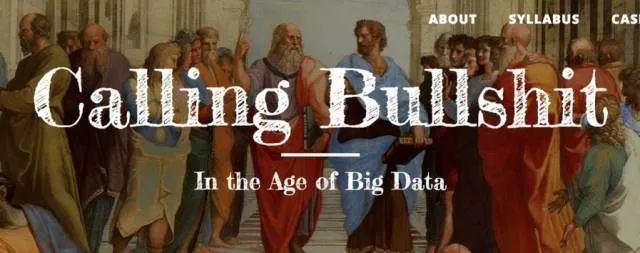
这门课叫“抵制大数据时代狗屁课程”(Calling Bullshit In the Age of Big Data),由信息学和生物学两名老师贯穿始终,老师试图从逻辑和传播渠道的角度揭开伪科学如何产生与传播。
Last July, the University of Washington debuted a similar course to help its students draw the line between science and pseudoscience via big data.
不过,复旦大学“似是而非”课程的教师团队更多元,授课内容更丰富,意图也在于普及思维和纠正偏见。
楼红卫教授认为,类似这样的课程非常有必要且实用。“太多受过高等教育的人,甚至于各个领域的专家学者,对于一些常识性的东西,时常会有错误的认知,缺乏必要的判断能力,尤其是当他们面对本专业之外的一些争议时。”
Lou believes it is necessary to teach such courses, as there are many highly-educated people, including experts and scholars, who harbor misconceptions and lack necessary judgment. This, he said, will have a negative influence on the next generation.
所以,现在只剩一个问题了:请问复旦接受旁听生嘛?
综合来源:央视新闻,中国日报,复旦青年
查看更多关于【英语时事】的文章